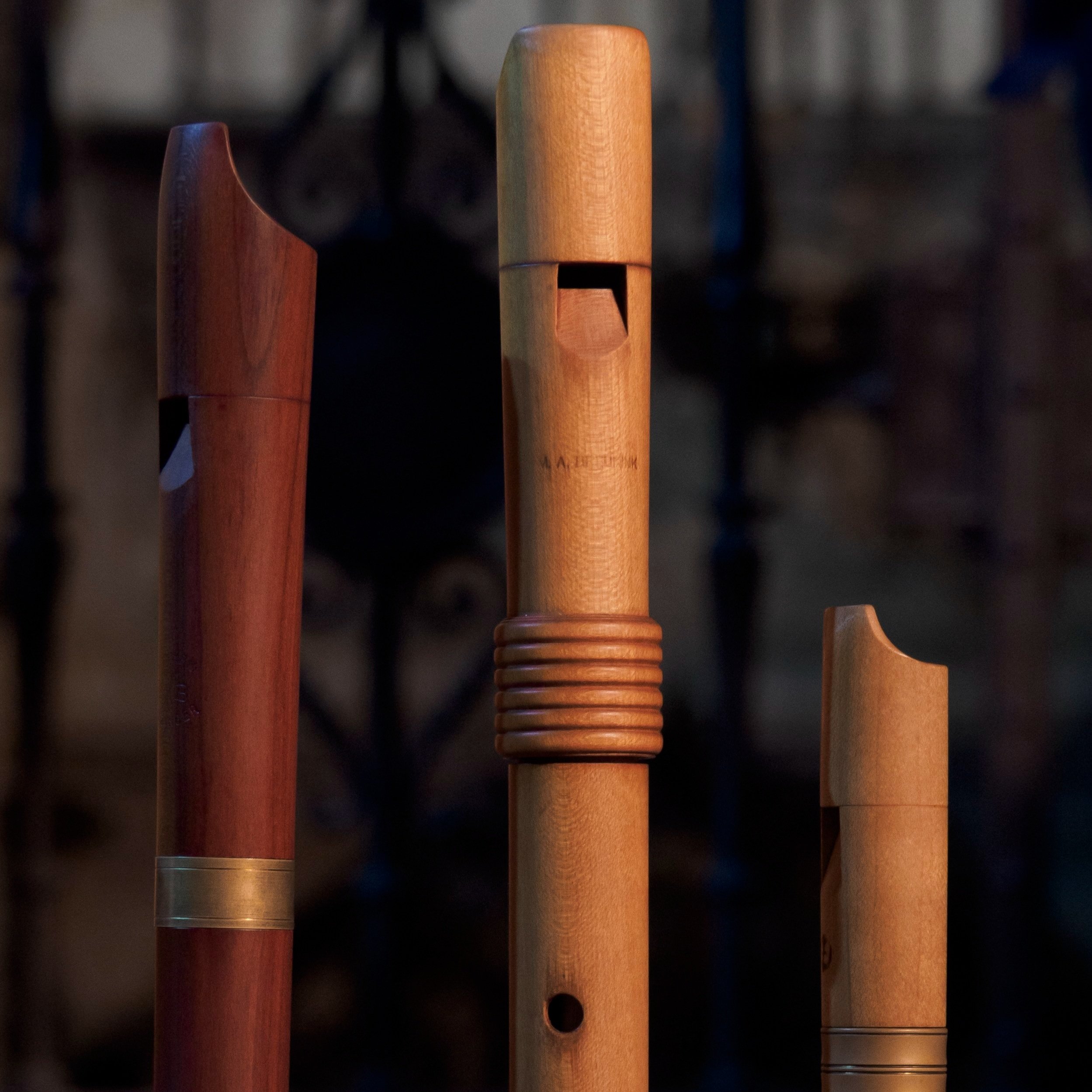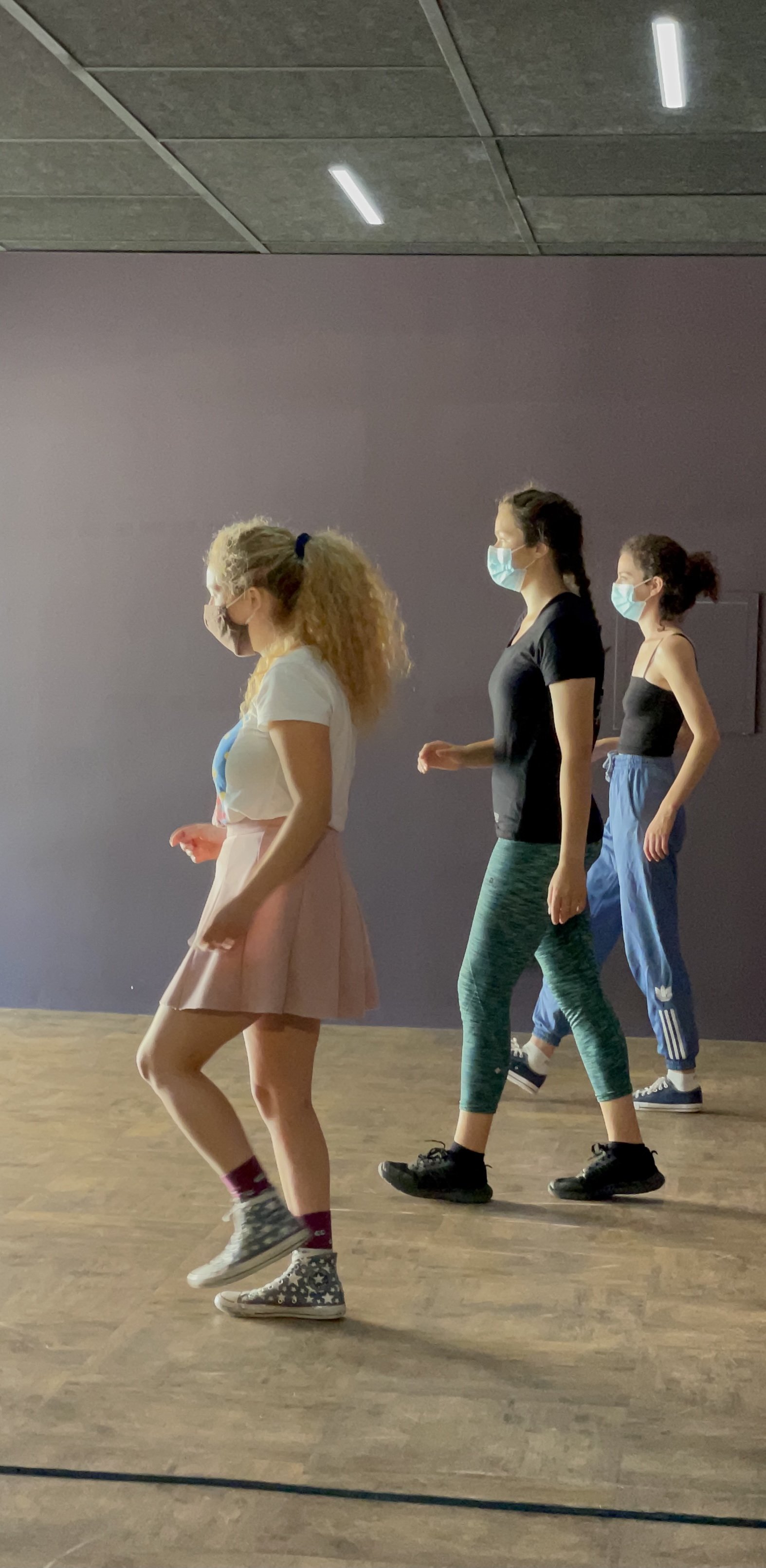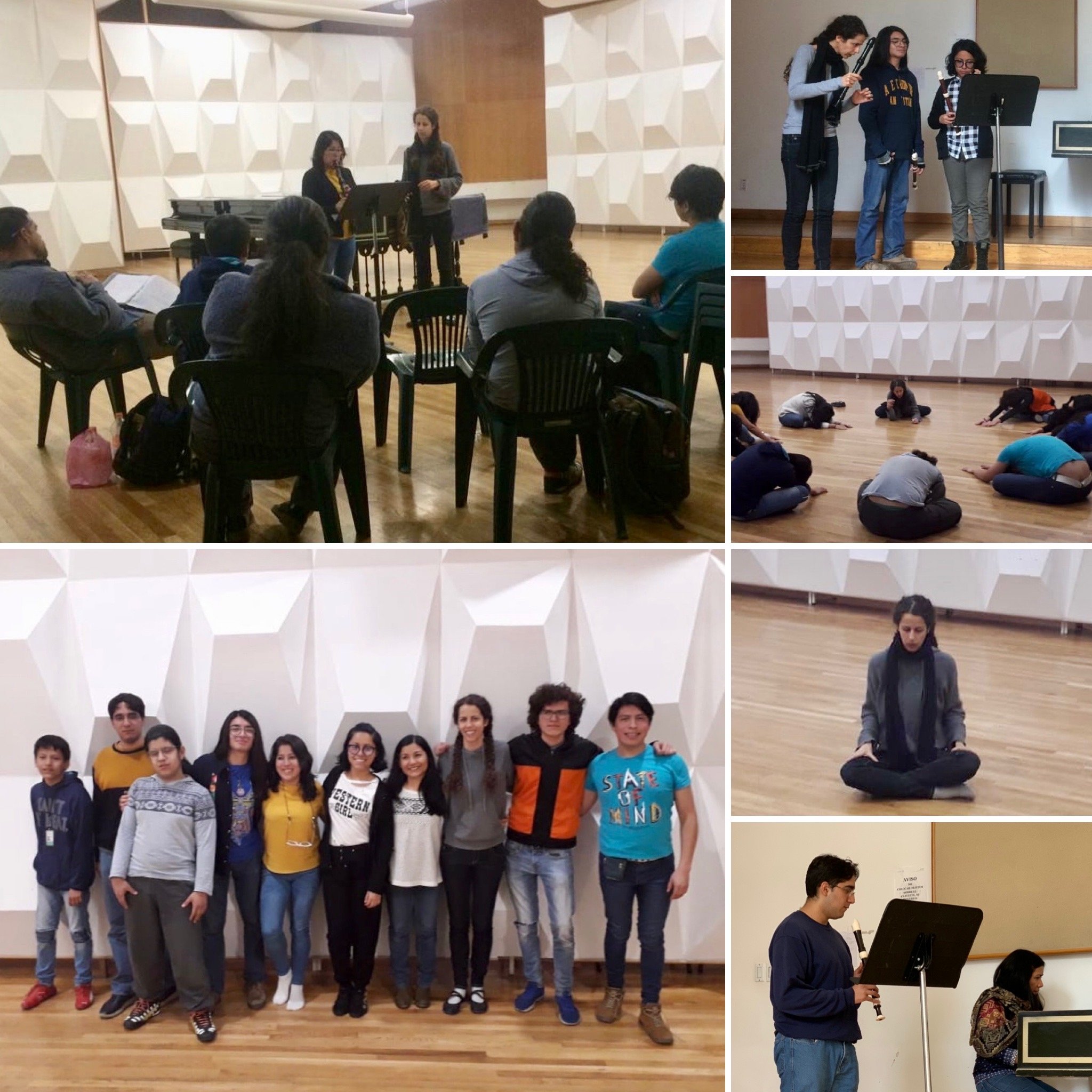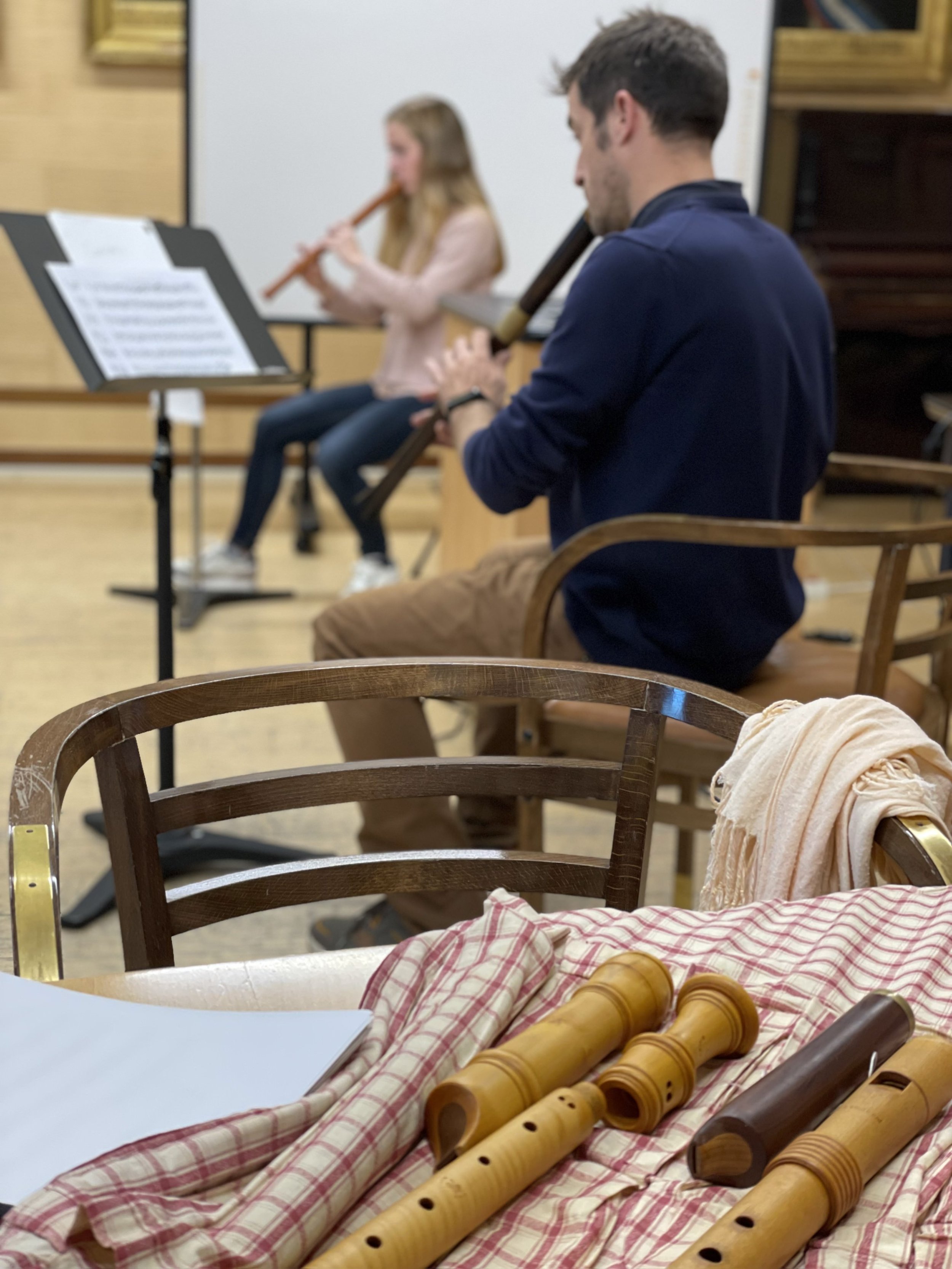COURSES
ONLINE COURSES
-
Lobke Sprenkeling Summer Course Online 2023
Tailored to your level - Weekends July 15-16 and 22-23
Two different classes of 1.5h this year: Beginner/Low-Intermediate, High-Intermediate Advanced/Professional.
There will be two Time Zones: European/American Time Zone and Australasian Time Zone.
*Last year, I noticed that advanced Spanish speaking recorder players had enough knowledge of English to join us in the English version. Therefore, in Spanish I will only offer a Beginner/Low-Intermediate class.
This is how we’ll do it:
In each class we will focus on a specific topic as specified below, with direct application to your own repertoire and your specific needs as an active student. In this way you will progress in your chosen repertoire, working on different aspects of the same piece while attending to your particular technical-musical needs. This year, instead of a Facebook group, I've set up a community space at nas.io, which is much more independent. Here, you'll be able to drop a question outside of class.
Our main topics will be:
July 15: Technique
July 16: Your Repertoire
July 22: Historical Improvisation & Ornamentation
July 23: Your Repertoire
Europe / America:
CEST (UTC +2) 6pm: Beginners/Low-Intermediate
CEST (UTC +2) 7.30pm: High-Intermediate/Advanced/Professional
CEST (UTC +2) 9.15pm: Spanish Beginners/Intermediate
Australasia/Europe morning:
Australian Eastern Time (UTC +10) 7pm - 8.30 pm: Beginners/Low-Intermediate
Australian Eastern Time (UTC +10) 8.30pm - 10.00 pm: High-Intermediate/Advanced/Professional
Don't forget to check your local time at the following link: https://www.timeanddate.com/worldclock/converter.html
How to register:
1. Send an email to lobke.world@gmail.com with your name, surname, location, the repertoire you would like to work on and some information about your current level, and preference of paying method (bank card or bank transfer). A video or audio recording will be useful to evaluate you and give you the best personalized feedback. You can also write me if you have any questions or doubts. There will be a maximum of 10 students per class.
2. Once you receive a confirmation about your attendance and your specific class, you’ll be able to make your purchase through my website (I’ll send you a link) or a bank transfer.
3. Upon purchase, you’ll receive a PDF that includes the Zoom link to the four classes at your level, as well as the other classes where you can attend as a listener.
Your Lobke Sprenkeling Summer Course 2023 costs 100 euros* if you are an active student.
This includes:
A) Receiving didactic material in pdf specially designed for your Lobke Sprenkeling Summer Course 2023.
B) Active and live participation in the 4 classes of 1.5 hr each of your assigned level.
C) Access as a listener to the other classes that are not of your assigned level.
D) Personalised homework as an active student.
E) Unlimited access to the community website for Lobke Sprenkeling Summer Course 2023.
F) Personal feedback to all your doubts by email.
If you decide to attend as a listener, your Lobke Sprenkeling Summer Course 2023 costs only 50 euros**.
This entitles you to the following:
A) Receiving didactic material in pdf specially designed for your Lobke Sprenkeling Summer Course 2023.
B) Access as a listener to all classes of the Lobke Sprenkeling Summer Course 2023 (limited number of participants)
C) Learning about different levels of development that will inspire your own goals.
See you in class!
Note for Active Students: *If you make your purchase before Sunday June 25, 2023, you get a 20% discount, and you will pay only 80 euros for your Lobke Sprenkeling Summer Course 2023.
Note for Listeners: **If you make your purchase before Sunday June 25, 2023, you get a 20% discount, and you will pay only 40 euros for your Lobke Sprenkeling Summer Course 2023.
-
I know several of you didn’t get the chance of taking the Renaissance diminution course, and others will want to take a refresh course, so we’re going to repeat it, with a twist! The sources will be the same as the previous diminution course, but we’re going to apply it to English music. As a preparation for this course, I’m going to send you my article on How To Diminish for Recorder Magazine for free. I do encourage you to purchase the entire magazine as soon as it comes out since there is lots of interesting information! I will offer the course, as always, in two time zones, Europe/America and Europe/Australasia. I will also offer a later class in Spanish with this subject focused on Spanish Renaissance music!
We will learn and practise how to ornament properly in Renaissance music. I will use the guide of Ortiz again, but we will also take the article as our guide and move on to the actual pieces.
WHEN
The class will be applicable for all levels from intermediate to professional and will take 90 minutes. There is a class for Australasia time zone in their evening, where morning Europeans can also participate:
1. Sunday June 18 CEST (UTC +2) 7pm - 8.30pm
2. Sunday June 18 AET - Australian Eastern Time (UTC +10) 7pm - 8.30 pm
Don't forget to check your local time at the following link: https://www.timeanddate.com/worldclock/converter.html
The Spanish version focused on Spanish music will be right after the Europe/America English class:
3. Sunday June 18 CEST (UTC +2) 8.30pm - 10.00pm
The course is for recorder players and other instrumentalists. Each course has a duration of 90 minutes and costs 25 euros (40 AUD) + transfer costs. Via website / Paypal: 5 euros (7,50 AUD), via bank transfer or Wise: bank costs.Those who take the English and Spanish classes get a discount of 10 euros, for a total of 40 euros + transfer costs.
How to register:
Send an email to lobke.world@gmail.com with your name, surname, location, some information about your background and current instrumental level if you weren't in previous Online Courses, and finally your preferred method of payment (bank card, PayPal or European bank transfer).
Once you receive a confirmation of your attendance, you’ll be able to make your purchase through PayPal, my website or by bank transfer. I will send you the information for your preferred method of payment.
Once you have made your purchase, you will receive a link to the course materials and the Zoom link to the class.
-
This course goes into one of the common questions when playing Baroque music: how can I ornament my sonata by Händel, Telemann, Sammartini, Mancini, Barsanti, Corelli? Should I add more florid ornaments in my repetitions and how can I do so?
In our course we go into mainly Italian ornamentation style. Several Italian composers worked in London, where Händel also lived and worked after his studies in Italy. Telemann knew both Italian and French styles well, and wrote his Methodic Sonatas later in his life, from which we can learn about ornamentation in German Baroque music.
We will both focus on the essential ornaments or “graces” and on the more free ornamentations as in the examples by Corelli, Barsanti, Gemininiani, Tartini, and Telemann. Then we will apply ornamentation to the actual music, focussing on some movements by Händel, Corelli and Telemann. The more florid ornaments consist of a mixture of scale-like and arpeggio movement, so we’ll have a look at style and harmonic possibilities for the ornaments. In this way, you’ll be able to gracefully adorn your Adagios!
-
This time we're getting into French Baroque ornamentation! We're up for another 90-minute Online Course on French Baroque ornamentation, its origins and application to the repertoire!
The course provides an in-depth exploration of the ornamentation techniques used in French Baroque Music, where we will go into their practical application to musical pieces. We will study the different types of ornaments used during this period, including trills, mordents (battement / pincé), appoggiaturas (port de voix). We will also examine the historical context in which these ornaments emerged and how they were used by the early Baroque composers for the Airs de Cour, as well as include the importance of the dance forms of the time.
-
A 90-minute Online Course on Italian 17th-Century ornamentation and its application to the musical pieces of the time! Even if you haven’t participated yet in the courses on Renaissance diminution, this course is a stand-alone course without any problem!
The course will provide an in-depth exploration of the ornamentation techniques used in 17th-century Italian music, with an emphasis on how to apply them to the musical pieces of the time. We will cover a variety of topics, including:
the types of ornamentation,
why and how they changed in relation to 16th-century diminutions,
the genres of instrumental solo music with basso continuo (sonata, canzona) as well as the free genre of the Ricercata,
and finally how to apply the “new” ornamentation to the musical pieces.
I will offer guidance on how to best use the ornamentation techniques in practice and performance.
Since 17th-century music can reach high levels of virtuosity, this time there will be two different levels: intermediate and advanced/professional. For each class, the participants choose a piece they’d like to work on or are already working on.
The intermediate class will focus on works by Riccio, Cima, Cecchino, Kapsberger, Frescobaldi, as well as one Ricercata by Bassano. These are pieces that can be performed from an intermediate level on. You will receive these materials on purchase so that you can practise at least one of the pieces before the class if you have never played 17th-century music. If you have, you can either work on one you already have in your repertoire or choose a new one.
The advanced/professional class will focus on virtuosic works by Castello, Fontana, Selma, Frescobaldi, Virgiliano, or any other piece the participants are working on. There is also a folder with several pieces to choose from for this class, sent to you on purchase.
The course is for all melody instruments, not just recorder players. At Madrid Royal Conservatory all Early Music students of melodic instruments take my course on historical ornamentation and improvisation.
-
This is an online class on Renaissance diminution, directly practising diminutions on intervals and in Renaissance pieces.
We will be working on Renaissance ornamentation from a primarily practical point of view: taking Renaissance pieces and ornamenting them as they were done. We will start with ornamenting intervals, but will soon go to the music. We will stop by the general rules, because it's important to assimilate them, but you’ll pick them up very quickly.
It's for intermediate and advanced levels, and for all melody instruments, not just recorder players.
At Madrid Royal Conservatory I teach not only the recorder but also historical ornamentation and improvisation, where all first year Early Music students of melodic instruments take my course.
-
In this course, we will go through the materials of Ortiz and you’ll learn to improvise and ornament Renaissance music!
This online class on Renaissance diminution is guided by Diego Ortiz and his treatise from 1553. It's for intermediate and advanced levels, and for all melody instruments, not just recorder players.
At Madrid Royal Conservatory I teach not only the recorder but also historical ornamentation and improvisation, where all first year Early Music students of melodic instruments take my course.
The class exists of two parts. The first is more informative, getting into the historical materials and understanding what we can learn from them, "The Rules", if you will. Then we will go to the practical part, which consists of playing the ornamented intervals by Ortiz and his diminutions on two madrigals. We will also read his written-down diminutions on repetitive bass patterns that were commonly used at the time. Finally, we will go into diminishing music ourselves. In short, we'll really get into Renaissance ornamentation and improvisation!
-
After our Lobke Sprenkeling Summer Course Online 2022, we continuo working on technique! These interactive online courses will be tailored to your level.
In each class we will focus on a specific topic, with direct application to the repertoire and your specific needs as an active student. In this way you will progress in your chosen repertoire, working on different aspects of the same piece while attending to your particular technical-musical needs.
IN-PERSON COURSES
-
Viewpoints is a fun technique for team building, getting out of the head and into the body in a relaxed and non-competitive way. I had intensive training in this technique apart from two Masters in Theatrical Studies and over 20 years of dance training, and adapted it to dancers, musicians and people with no experience at all. I have given this course at several Dance Conservatories, but also High Schools, Music Conservatories and Businesses. My method is adaptable to both Businesses (Team Building), Teenagers, Musicians and Dancers.
-
Being the recorder teacher at Madrid Royal Conservatory, and with my experience of 15 years of training pre-conservatory students to children, teenagers and adults, I can help both beginning, intermediate and advanced students fast to improve to a higher level. I also help professionals refresh their technique and repertoire.
I have taught masterclasses at several conservatories and festivals in Europe, USA and Mexico, and have students who already finished their studies and wish to progress. I offer both masterclasses and private classes.
-
At Madrid Royal Conservatory I teach not only the recorder but also historical ornamentation and improvisation, where all first year Early Music students of melodic instruments take my course.
I teach diminution and Baroque ornamentation, as well as historical improvisation at all levels.
TESTIMONIALS
Summer course August 2022
It was wonderful to take a series of classes from Lobke in her Summer 2022 course. She is a top notch teacher! With her keen eye she quickly identified my posture and fingering problems and offered corrections. She also improved my interpretation of music and I further benefited from her guidance for other students. I am using everything she taught in the course and have seen significant improvements in my recorder playing and my understanding of music. I would highly recommend her class! - D., USA
Thank you for what you did. It inspired me to return to the instrument with new enthusiasm! - Irene Kaufmann, USA
Lobke Sprenkeling’s workshops on posture and other techniques were great. I can access so much breath now, and my tones are so much better. Now I always spend time doing her breathing, mobility, and posture exercises before I play. Always encouraging and patient, she took the time to watch everyone play and offer helpful tips and exercises. - Kathleen Davis, USA
Diminutions December 2022 (Ortiz) / January 2023 (General)
This was a two hour class Lobke offered on Renaissance music diminutions. And WOW, this class was packed with information on many of the diminution patterns used by the leading Renaissance composers. This topic is rarely discussed. Lobke taught how to learn these patterns and then how to play them in music pieces. Learning to play diminutions is very close to learning how to improvise. This class gave me a strong base to launch to a higher level of music education and sophisticated playing. All students were playing diminutions by the end of the class. What a feeling of success! - D., USA
If you've ever wanted to learn Renaissance improvisation, which was achieved in the 16th century by subdividing notes into patterns of shorter notes, called "diminutions", Lobke Sprenkeling's classes on diminutions are an excellent first step. Her classes are highly condensed -- they cover materials from an entire semester course in two, 2-hour zoom sessions. She provides students with historical materials from many sources, including the Bassanos and Ortiz. We practiced embellishments moving between notes, as set out in the original guides. We looked at the harmonics of several famous ostinato patterns and practiced embellishments on them. We also got a chance to improvise diminutions on several popular pieces of the 16th century. Lobke's classes are a combination of basic grounding in performance issues and practicing. The goal is to teach the student how to learn this skill. It's very "fingers on". In addition to being an outstanding recorder player, with full command of historical technique, Lobke is very generous with her time and cares very much about helping her students. I highly recommend all of Lobke's classes. - Dan Bloomberg, USA
As an intermediate player and a scholar of Spanish culture, I have been looking forward to approaching Diego Ortiz’s music. Lobke’s presentation of the Tratado de glosas was extremely useful in showing how she went from the original songs to building up the complex diminutions of the Recercadas. With regard to the general diminution course: in two short but informative hours, Lobke took us through two centuries of Renaissance ornamentation styles. I learned about books, apps, treatises, and other tools that I can uses to practice different styles. She has really changed my practice and playing of Renaissance pieces. - Kathleen Davis, USA
Lobke's way of teaching the art of renaissance divisions makes what could be a totally daunting topic approachable, logical and really enjoyable. Whether a novice or someone who already has some knowledge, her use of backing tracks and graduated exercises removes all the confusion about where to start and how to progress in a way that has tangible results. I feel I took away a lot that can easily be applied to a variety of pieces in many different contexts. Lobke's use of original sources and knowledge of the historical context added a very interesting balance to the practical element. I would highly recommend this course as Lobke knows her material thoroughly and presents it in a way that gives the participant not only the means and confidence to try things themselves, but to continue to develop their skills in this area. - Michael Piraner, United Kingdom
The course about Renaissance diminutions was very interesting for me. We reviewed various treatises and diminution proposals for each case and then we put them into practice! I am very grateful to be able to take online courses with such valuable information! - Cristina Pinto, Chile
A very practical and entertaining course for both beginners and more experienced performers. The time went by quickly! - Juantxo Vega, Spain
17th century Italian ornamentation and repertoire
The material Lobke presented in this class was well chosen with both its practical application and historical context examined. All examples and exercises are presented in a methodical way giving the participant a concrete understanding from which to progress on their own. Rather than a dry, purely academic presentation, Lobke provides a friendly and enjoyable experience in which all participants feel free to discuss ideas. I have no hesitation in recommending Lobke's courses. - Michael Piraner, United Kingdom
French Baroque ornamentation
I love Lobke's classes, they are wonderfully presented and she includes great resources that I can continue to explore afterwards. In the class on French Baroque Ornamentation, Lobke gave us really insightful descriptions of each ornament and the gestures that they imply, then led us through various historical works and how we can apply those ideas. In addition, the materials that Lobke used in the course have been fantastic resources to refer back to. I felt really well informed after the class and more confident in approaching music from the French Baroque. - Steve Dinda, USA






